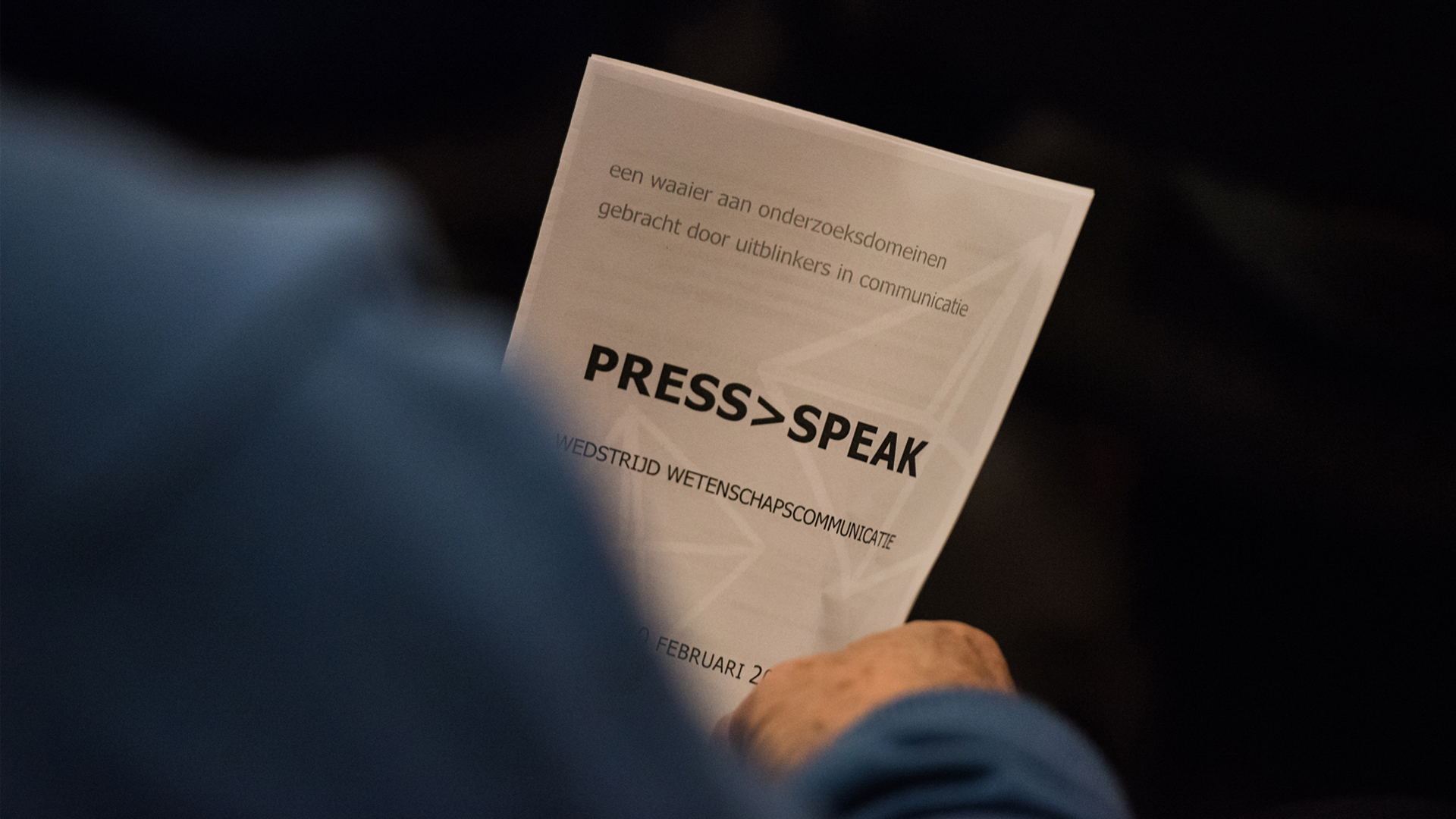PRESS > SPEAK is the University of Antwerp’s annual presentation competition. After careful preparations, young researchers compete to present their research in just five minutes. The presentations are often their first experiences of science communication. Alongside the presentation competition, researchers can also take part in the PRESS > SPEAK writing competition. The goal? To write a clear, easy-to-read text of up to 1000 characters describing their research. As in the presenting competition, the writing competitors first receive coaching to help them prepare.
In previous years, the results of the writing contest could be found in the research section of Pintra Magazine. This is a tradition we’d like to continue on the Pintra Blog. Read on to see the results of the 2020 PRESS > SPEAK writing contest.
A six-pack after a stroke: the road to recovery
Tamaya Van Criekinge
Faculty of Medicine and Health Sciences
Rehabilitation Sciences and Physiotherapy, Movement Antwerp (MOVANT) research group
Physiotherapists agree that to regain independence after a stroke, core training – strengthening your stomach and back muscles – is essential. After all, your torso is involved in lots of different movements, like reaching for things, standing up and walking.
You can probably remember your stomach or back muscles feeling stiff and sore after a tough workout. Just think how annoying it was every time a muscle started hurting when you moved. Imagine not being able to control those movements – difficult, right? That’s why people who’ve had a stroke should train their core muscles to be able to carry out all these movements as well as they can.
In my PhD research I looked at the extent to which the muscles used by 39 stroke patients while walking changed after an intensive core training programme. I found that core exercises seem to make back muscles more resistant to fatigue, which leads to a more upright posture. As a result, the walking patterns of stroke patients improve drastically – not only because they can take steps more quickly, but also because their steps become bigger and narrower.
Translated from the original Dutch.
Isala helps write a better history for women
Sarah Ahannach
Faculty of Science
Environmental Ecology and Applied Microbiology (ENdEMIC)
www.isala.be
We want to put women’s health on everyone’s radar by mapping the vaginal microbiome on a large scale for the first time. There have been no significant breakthroughs in the treatment of bladder or vaginal infections in the last 40 years, despite the fact that the World Health Organization has reported a worldwide increase in vaginal infections.
The microorganisms in the vagina, also called the vaginal microbiome, ensure the optimum functioning of the reproductive system and protect women from infections. Imbalances in the microbiome are linked to pregnancy problems, STI risks and psychosocial problems. With the Isala project, we want to make women aware of the crucial role that good microorganisms play.
We want to empower women to take vaginal samples themselves through citizen science and in this way to take matters into their own hands. We also want to bring the subject out into the open and break taboos around it. Finally, we want to highlight the societal impact of having a diverse research team. Together, we can write a better history for women.
Translated from the original Dutch.


